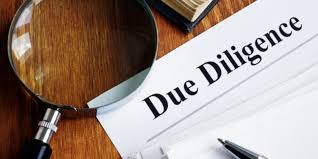How to Develop Comprehensive Property Due Diligence Reports

Creating a property report is an essential part of the process when considering an investment or transaction involving real estate. This thorough investigation ensures all aspects of the property are understood and assessed, reducing risks and ensuring informed decision-making. Understanding the specific steps involved in developing a comprehensive property due diligence report is crucial for anyone involved in real estate transactions.
Understanding Property Due Diligence
Property due diligence involves a detailed assessment of a property’s condition, its legal standings, and its surroundings. This process helps reveal any potential risks, such as structural issues, legal problems, or environmental hazards like the history of Brisbane flooding for properties in flood-prone areas.
Step 1: Preliminary Research
The first step in preparing a due diligence report is conducting preliminary research. This involves gathering all relevant information about the property, including its current ownership, legal status, and any encumbrances that may affect its sale. Public records, online databases, and local government resources are valuable tools during this phase.
Step 2: Physical Inspection
Conducting a comprehensive physical inspection of the property is crucial. This step involves evaluating the structural integrity of the property, its systems (such as plumbing and electrical), and identifying any necessary repairs or maintenance needed. Engaging a qualified inspector can provide an objective assessment of the property’s condition.
Step 3: Legal Review
The legal review is an integral part of due diligence. It requires an examination of all legal documentation, including title deeds, zoning regulations, and any existing leases or tenancy agreements. Ensuring the property complies with local laws and regulations is essential to prevent any legal disputes in the future.
Step 4: Environmental Assessment
An environmental assessment ensures the property is safe and free from environmental hazards such as contamination or structural risks resulting from climate events like Brisbane flooding. This step often involves hiring environmental experts to conduct tests and provide a thorough report on the property’s environmental status.
Step 5: Financial Analysis
Financial analysis is necessary to evaluate the economic viability of the property. This involves assessing current income streams, potential for future earnings, and the overall market conditions. Comparing similar properties within the area can help provide a realistic appraisal of the property’s financial potential.
Step 6: Risk Assessment
Identifying and analysing risks associated with the property is vital. This step involves assessing potential physical, legal, and financial risks. A well-prepared report will highlight these risks and provide strategies to mitigate them, ensuring that all involved parties can make informed decisions.
Step 7: Compiling the Report
Once all the data has been gathered and analysed, the information needs to be compiled into a cohesive report. This document should provide a comprehensive overview of the property, highlighting strengths, weaknesses, and any recommendations or action plans moving forward.
Step 8: Review and Finalisation
The final step involves reviewing the report meticulously to ensure all information is accurate and complete. Seeking input from various stakeholders, including legal advisors and inspectors, can help ensure the report is as thorough as possible before it is finalised.
The Importance of Expertise
Creating a comprehensive due diligence report often requires professional expertise to ensure accuracy and completeness. Collaborating with experts in legal, environmental, and financial fields can enhance the quality and reliability of the report.
Conclusion
Developing a comprehensive property due diligence report is a detailed process that requires careful planning and execution. By following these steps and engaging with the necessary experts, individuals can create robust reports that ensure informed and confident real estate decisions. With resources from platforms like property due diligence made easy, the process becomes more approachable and manageable, assisting prospective buyers and investors in navigating the complexities of property transactions efficiently.




